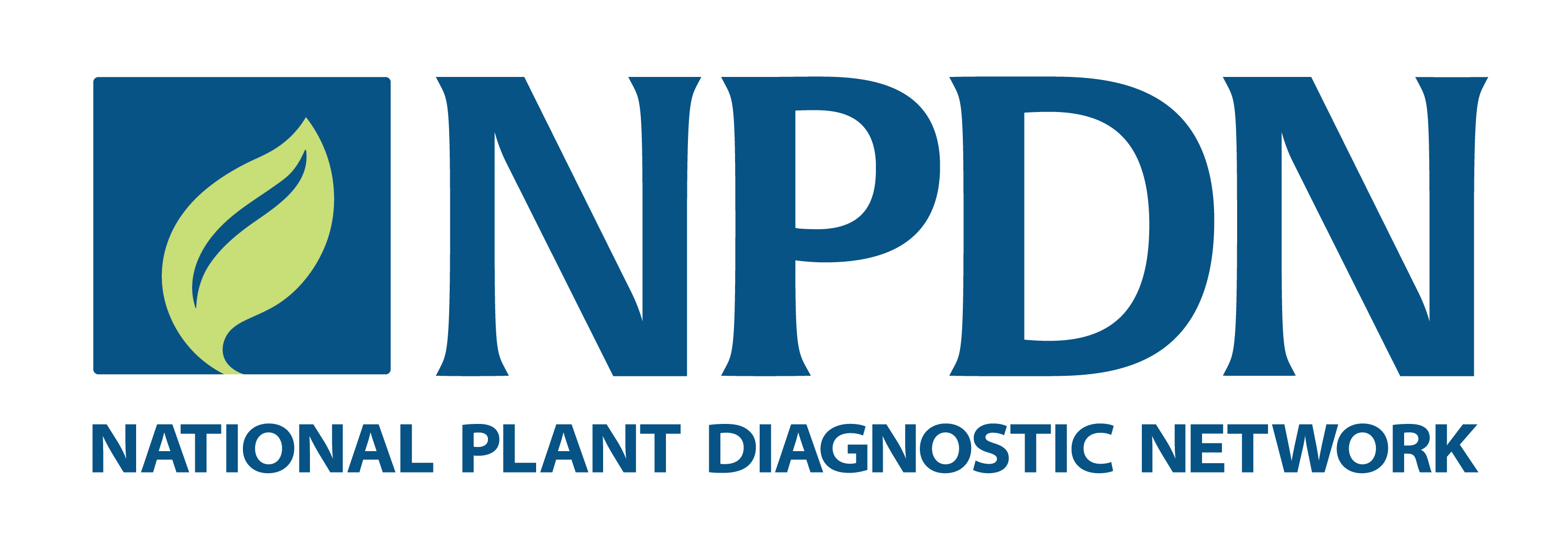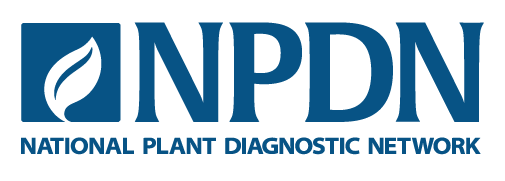Last Updated: November, 2022
Please note that not all workshops will be taught every year. The workshop program for each year depends on the demand.
Bioinformatics of Sanger Sequencing Workshop-Module SS
The Bioinformatics Module SS workshop is taught over 3 days and has both lecture and hands-on activities. The lectures will cover a range of sanger sequencing topics from primer design to introductory sequence analysis, as well as the molecular classification and diagnostics of a wide range of pathogens including bacteria, fungi, nematodes, Phytoplasmas, viruses and Phytophthora species. The hands-on portion of the workshop allows participants to analyze provided sequence data and use various bioinformatic tools for detection and diagnosis of plant pathogens. Participants also may analyze their own Sanger sequence data.
In recent years, this workshop has been presented using a virtual delivery format. Participants must have access to a computer. Presentation slides are text heavy, therefore, phones and tablets are not recommended. Participants must have access to Geneious prime software for the activities. Trial versions and monthly rental may be available if your institution does not own a license.
Bioinformatics of High Throughput Sequencing Workshop-Module HTS
The Bioinformatics Module HTS workshop is taught over 3 days and has both lecture and hands-on activities. The lectures will cover a range of high throughput sequencing technologies, analysis tools, applications in plant pathogen diagnostics and data analysis pipelines. The hands-on portion allows participants to analyze example datasets using various open-source sequence analysis software publicly available on the Galaxy server for genome assembly and detection of plant pathogens.
In recent years, this workshop has been presented using a virtual delivery format. Participants must have access to a computer. Presentation slides are text heavy, therefore, phones and tablets are not recommended. Participants must have access to the Galaxy server for activities. No cost versions of Galaxy should be available.
Citrus Canker Molecular Detection Workshop
The citrus canker molecular detection workshop is a 2-day workshop that has lectures and hands-on components. The lectures will cover the disease characteristics and an overview of citrus canker diagnostic testing at the USDA-APHIS-PPQ S&T Plant Pathogen Confirmatory Diagnostics Laboratory (PPCDL). The hands-on portion of the training will focus on sample preparation, screening diagnostics and interpretation of results.
Isothermal Amplification Workshop
The isothermal amplification workshop is a 2-day workshop that has lectures and hands-on components. The lectures will cover isothermal amplification technologies and assay design. The hands-on portion of the workshop will include nucleic acid extraction and loop-mediated isothermal amplification (LAMP) or recombinase polymerase amplification (RPA) targeting select bacterial and fungal pathogens.
Pathogens covered include:
- Citrus Black Spot (Guignardia citricarpa)
- Citrus greening (‘CandidatusLiberibacter asiaticus’)
- Ash Dieback (Hymenoscyphusfraxineus)
Phytophthora 101 Workshop
The Phytophthora 101 Workshop is a 3-day workshop that has lectures and hands-on components. The lectures include a review of Phytophthora ramorum, DNA extraction, the real-time PCR protocols using P. ramorum (ITS and Elicitin) and Phytophthora kernoviae (ITS1 and ITS2) as the targets, and interpretation of results. Each day will consist of a combination of lecture, lab activities, and discussion of participant results, troubleshooting, and good lab practices to obtain optimal results.
The Phytophthora 101 Workshop is one of the most requested workshops we offer. The workshops often fill the available spaces very quickly and we often have a waitlist. The workshop will
Phytoplasmas Molecular Detection Workshop
The Phytoplasmas Molecular Detection Workshop is a 2-day workshop that has lectures and hands-on components. The lectures include an introduction to phytoplasmas, their taxonomy and the disease symptoms associated with some of these bacterial pathogens of interest to APHIS PPQ. The hands-on portion of the training will focus on available phytoplasmas infected samples (e.g., Poinsettia and Pine) and cover sample preparation, DNA extraction/purification, conventional and real-time PCR procedures, and interpretation of results.
Seed Pathogen Testing Workshop on CGMMV, ToBRFV, Popsi
The Seed Pathogen Testing workshop for 2023 is for two days at the PPQ S&T Plant Pathogen Confirmatory Diagnostics Laboratory (PPCDL), Laurel, MD. It will comprise of a lecture overview of seedborne pathology and the principles of extraction of nucleic acid from seeds for pathogen detection. There will a hands-on laboratory exercise on seed nucleic acid extraction and RT-PCR detection of a seedborne virus performed by each participant. Laboratory exercise results will be analyzed, and experience shared. Seed grinding tools and equipment, and robotic extraction of nucleic acid from seeds will be demonstrated. Nucleic acid extraction will be magnetic bead based.
Potato Wart Workshop
The Potato Wart Workshop is a 2-day virtual workshop that provides lectures on the background, taxonomy, and morphological characteristics of Synchytrium endobioticum, the causal agent of Potato Wart. It will also include lectures on sample preparation, DNA extractions, real-time PCR analysis, and results interpretation.
General best laboratory practices
The good laboratory practices and quality management systems workshop is being offered for the first time in 2023. The workshop will be held virtually and will be a prerequisite for all other NPDN trainings this year. The quality management portion of the lecture will discuss quality management systems vs ISO 17025 accreditation and the importance of record management in all aspects of quality management. The good laboratory practices portion of the lecture will discuss aseptic technique, preventing contamination and general recommendations for working in a laboratory.
Guidance on submission of suspect samples for confirmatory diagnostic testing
TBD
Real time PCR basics
The TaqMan probe real-time PCR basics workshop is being offered for the first time in 2023. The workshop will be a virtual lecture. The lecture will introduce the basic principle of TaqMan Probe Real-time PCR, knowledge about the instruments, assay design / development, and method validation. Regarding applying the knowledge in problem solving, examples from our practices will be discussed in, e.g., methods for detection of HLB (aka. Citrus greening), Citrus Variegated Chlorosis (CVC), Bacterial Blight of rice.
Pathogens exemplified in the lecture include:
- Huanglongbing, aka. Citrus Greening (“Candidatus” Liberibacter asiaticus)
- Citrus Variegated Chlorosis (Xylella fastidiosa CVC strains)
- Bacterial Blight of rice (Xanthomonas oryzae oryzoe vs. X. oryzae USA strains)
Solanaceous seed extraction methods.
Discussion and demonstration of extracting nucleic acids of regulated plant pathogens present on the seeds of tomato, pepper, and eggplant. The pathogens discussed include Tomato brown fruit rugose virus (ToBRFV), Potato spindle tuber viroid (PSTVd), Tomato apical stunt viroid (TASVd), and Tomato chlorotic dwarf viroid (TCDVd)]. Several video clips of the nucleic acid extraction processes will be shown. The method used will be compared to others. No hands-on work is required for this workshop.

